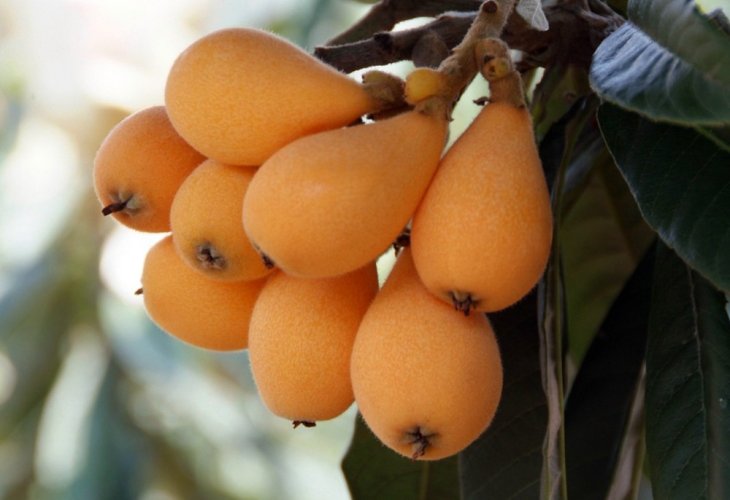Now's the Time to Eat Loquat: Several Health Benefits and a Little-Known Fact
If you haven't included it in your diet yet, consider adding this sweet, healthy fruit that's now in season.

If you haven't included it in your diet yet, consider adding this sweet, healthy fruit that's now in season.
Loquat.
What you didn't know about it is that even its leaves, the part we least think of as beneficial, are consumed in some cultures claiming they protect the body against free radicals.
A study conducted in Japan found that the polyphenols found in loquat can destroy cancer cells in the early stages of the disease.
In traditional Chinese medicine, all parts of the fruit, including its leaves, are used to treat inflammatory diseases such as cough and asthma. Modern scientific studies using various experimental models have proven the anti-inflammatory properties of the different parts of the loquat - seed, leaf, and fruit.
At the US National Library of Medicine (US National Library of MedicineNational Institutes of Health), there is a long and fascinating medical study on loquat extract, stating that "since many compounds like ursolic acid, chlorogenic acid, glycyrrhizin, quercetin and its derivatives have been thoroughly studied due to their biological activity as pure chemical compounds, consuming raw loquat or its extract, juice, etc., may have highly beneficial health effects."
Insulin Levels in Rats Dropped Significantly
The same study also reported using a mouse experimental model to test the hypoglycemic effects of loquat extracts containing corosolic acid and maslinic acid, which significantly improved hyperglycemia in mice.
In another study, researchers fed rats loquat seeds ground into powder, and the results were astonishing: the glucose concentration and insulin levels in the rats' blood dropped significantly. Ethanol extracts from loquat seeds suppressed the rise in blood glucose levels for four months afterward.
Loquat is not only a nutritious and very tasty fruit, but it also contains many essential substances for our bodies, like folic acid, vitamins A, B, as well as magnesium, potassium, and dietary fibers.
It is excellent for eye and heart health, strengthening the immune system, protecting it against infections and different types of flu, and promoting digestive health.
How much should you consume? Below is a table showing the values for a full cup of loquat cubes.
Calories - 70.
Dietary fibers - 18 grams.
Protein - one gram.
Magnesium: 5 percent.
Potassium: 11 percent.
Manganese: 11 percent.
Vitamin A: forty-six percent of the daily recommended intake.
Vitamin B6: seven percent of the daily recommended intake.

